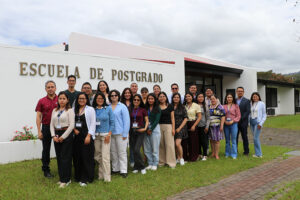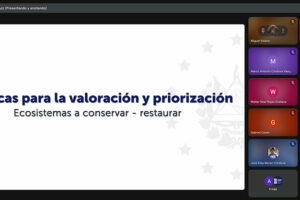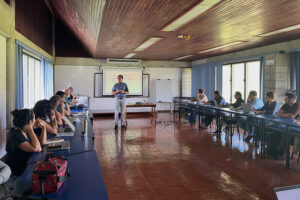Field Schools: Living Spaces for Collective Learning
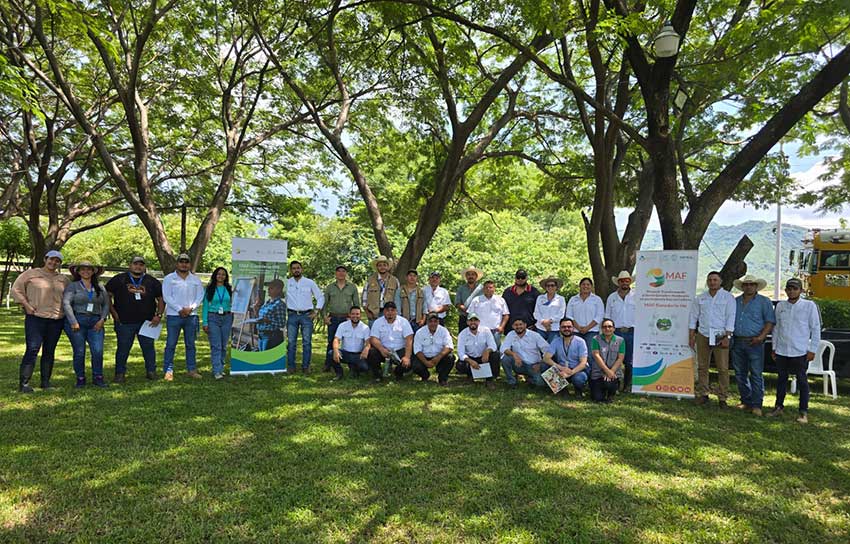
- Honduran livestock families strengthen their knowledge, boost productivity, and build sustainable solutions to face climate change.
In the context of climate change and production challenges, the technical team of the MAF–Livestock–HN Project is leading participatory processes with Honduran livestock families to promote more efficient and sustainable production.
As part of the Training of Trainers Program, facilitators from the technical assistance component of MAF–Livestock–HN and partner organizations such as Ayuda en Acción and ODEF are strengthening the skills of those who guide change processes in the livestock sector. These facilitators receive practical and participatory training to later replicate dynamic sessions with farming families in Farmer Field Schools (FFS).
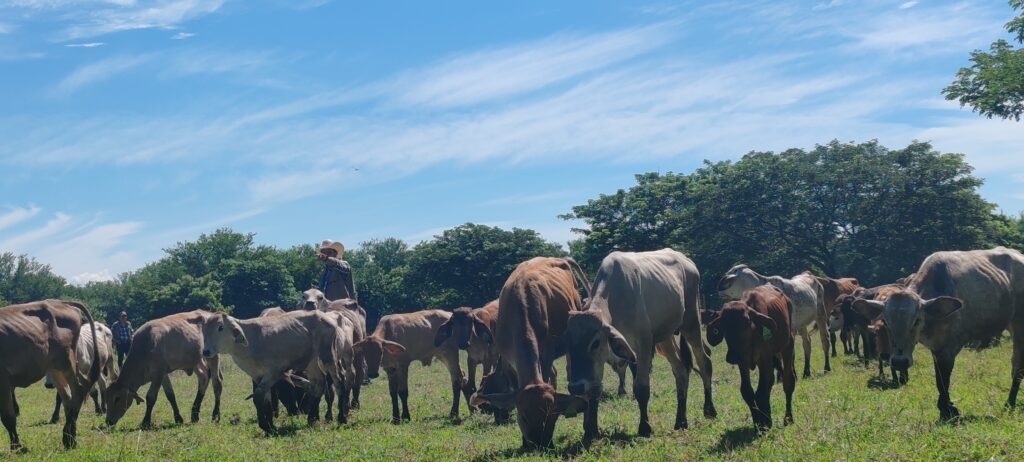
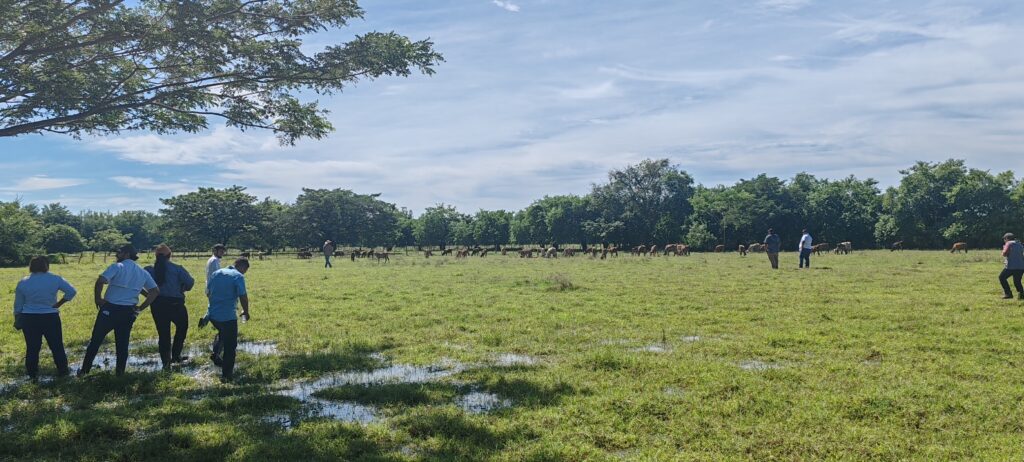
Located in the main livestock-producing departments of Honduras (Yoro, Colón, Olancho, and Choluteca), the FFS have become true innovation laboratories where farmers learn by doing—experimenting, exchanging knowledge, engaging in dialogue, and building solutions tailored to their reality. In this way, each FFS promotes the development of sustainable, low-carbon, people-centered livestock farming.
During this session, specialists from CURLA, Zamorano, Heifer, and CATIE shared knowledge on precision nutrition and feeding, as well as on parasite control in cattle. The modules covered topics such as feed production and ecto- and endoparasitic diseases (CURLA); milking routine, milk quality, and stocking rate (CATIE–Heifer International); and herd structure (Zamorano).
These actions foster more efficient, resilient, and environmentally responsible livestock systems, aligned with the project’s goals of mitigating climate change impacts and improving the well-being of rural communities.
Cattle farming is a cornerstone of the Honduran rural economy, yet it faces major challenges: nutritional deficiencies in herds, low productivity, and high incidence of parasitic diseases, especially in tropical zones.
To address these challenges, the MAF–Sustainable Livestock–HN Project has been working since 2023 to implement precision livestock practices aimed at optimizing feed resource use, improving animal health, and reducing greenhouse gas (GHG) emissions.
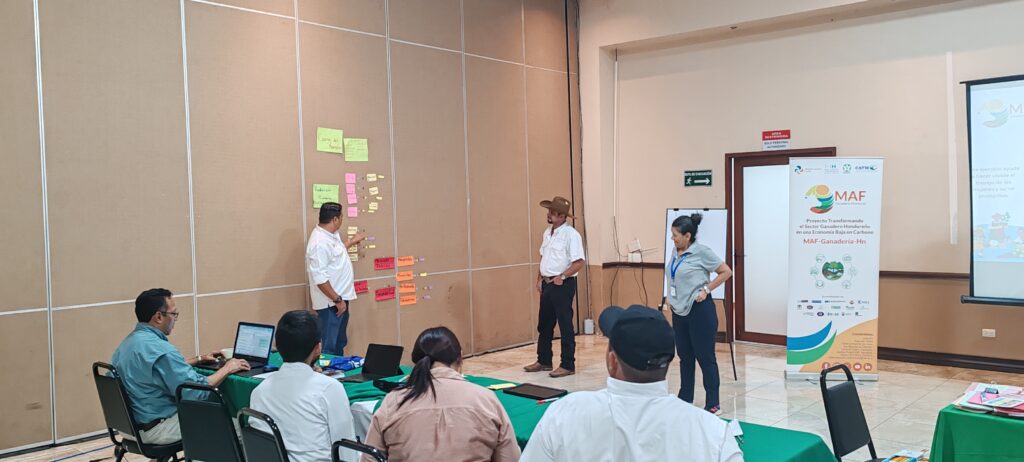
Key Achievements and Highlights
Entre los resultados más destacados de las jornadas se encuentran:
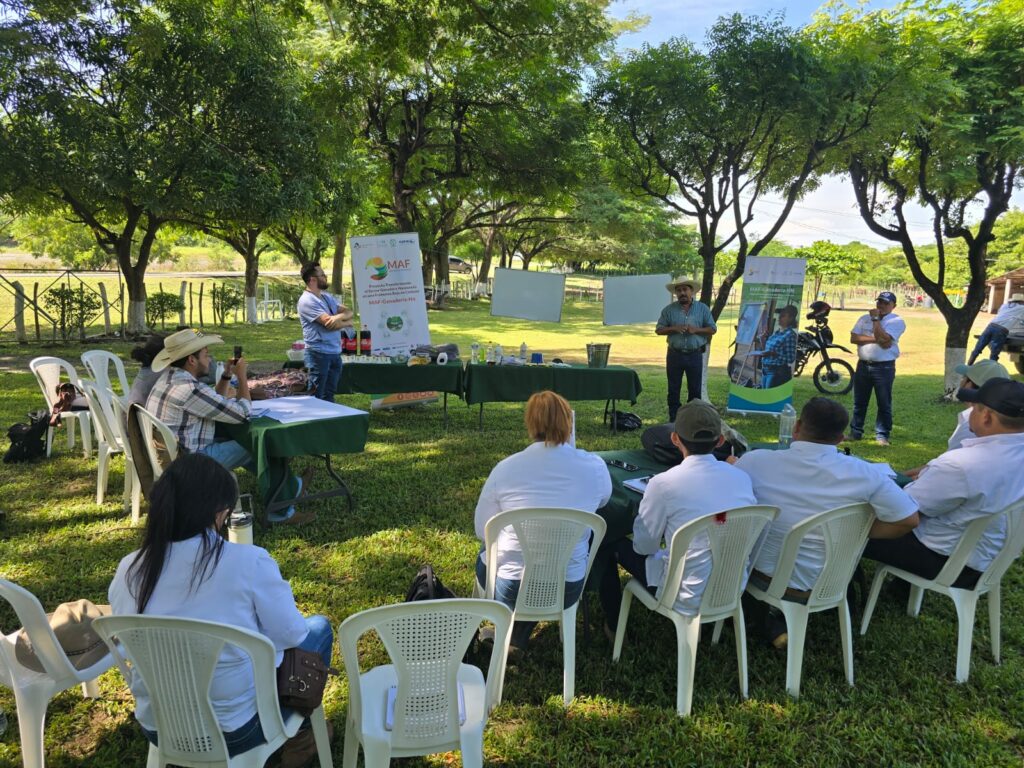
More than 2,111 farmers trained in sustainable practices that integrate local knowledge with modern technical tools. Among them, 15.8% are women, 15.15% are youth under 30, 65.5% are adults up to 50, and 19.3% are older adults—reflecting the project’s commitment to inclusion and gender equity.
Implementation of precision feeding plans that improve forage utilization and reduce dependency on external inputs.
Potential reduction of GHG emissions through more efficient and balanced feeding management.
Design of context-specific parasite control programs, improving herd health and productivity.
Active participation of rural women and youth, promoting inclusion and community leadership.
Through these efforts, MAF–CATIE reaffirms its commitment to sustainable, profitable, and inclusive livestock farming in Honduras, built on a combination of technical knowledge, participatory education, and environmental stewardship.
Voices from the Field
“We learned how to calculate how much feed our cattle actually need and how to make better use of the pasture we produce on the farm,” said Alexis Rigoberto Espinal, from Jicaral, Linaca, Choluteca.
“With the deworming plan, we now know how to prevent diseases before they affect production. It’s an improvement for us and for our animals,” added Edas Mondragón, facilitator from Choluteca.
According to M.Sc. Josué Mauricio Flores, nutrition specialist, “these trainings allow livestock families to become active agents of change, applying more efficient practices that benefit both the family economy and the environment.”
“When livestock families apply their knowledge to produce quality milk, they have a better chance of getting a good price in the market. Good milking practices make farms more productive and sustainable,” said Francisco Erazo, facilitator from Olancho.
“Good milking practices, such as preventive health management and appropriate use of medications, have helped increase productivity and reduce carbon emissions,” commented Héctor Yovani Rueda, farmer from Balcanes, Choluteca.
“Knowing herd structure is key to farm management, as it helps identify areas for improvement, set production goals, and shape the business vision,” highlighted Juan Carlos Galeano, facilitator from FEGASURH, Choluteca.
“This training process allows us to standardize criteria and align processes to drive sustainable livestock farming—economically, environmentally, and socially. Involving actors from different sectors significantly increases the chances of achieving that goal; in fact, the project was designed with this approach in mind,” emphasized Edwin García, coordinator of the project’s Technical Assistance component.
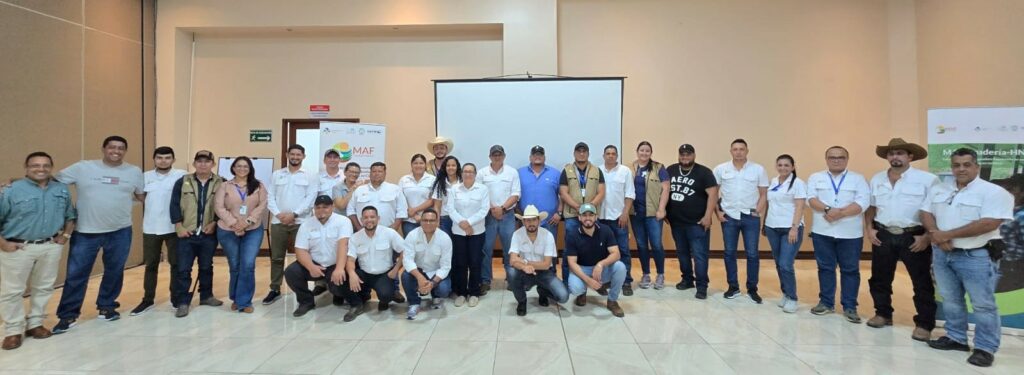
About the MAF Livestock Honduras Project
The MAF–Livestock–HN Project will continue strengthening local capacities through field sessions and technical modules focused on productive efficiency, climate resilience, and environmental sustainability.
In the coming months, trainings will expand to other departments of the country, incorporating topics such as genetic improvement, manure management, and climate change adaptation.
In this way, MAF reaffirms its commitment to low-emission, profitable, and inclusive livestock farming in Honduras, improving productivity without compromising natural resources or the well-being of rural communities.
More information/written by:
Gina Samanti Puerto Morazán
Comunicaciones
Transforming the Honduran Livestock Sector
into a Low-carbon Economy
MAF-Ganadería-HN.
gina.puerto@catie.ac.cr

